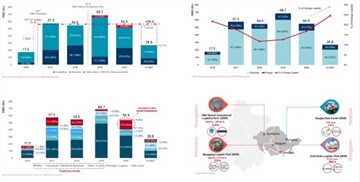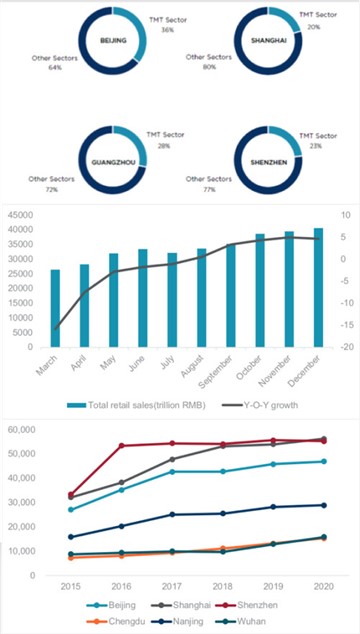CAIRO, April 20 (Xinhua) -- The price of building materials has increased significantly for the past few months in Egypt, putting the country's real estate sector under pressure, said the country's analysts.
Egyptians look upon real estate as a "safe investment," while the government considers it as "one of the development trains that employ a large number of people and lure good foreign investment," Hussein Gomaa, chairman of Cairo-based Architectural Development and Maintenance Society, told Xinhua.
However, the construction sector has recently been facing several challenges on the heel of the inflation wave that hit all commodities and products in Egypt, including building raw materials like steel and cement.
Gomaa said that cement and steel prices have increased by nearly 50 percent since the end of February, noting that raw materials make up 25 percent of the cost of real estate projects.
The expert added that the hikes in energy prices, shipping costs, and laborers' wages are also behind the cost crisis of real estate projects.
Gomaa explained that most real estate developers in Egypt use an off-plan system, which means selling the houses or units on paper designs before the implementation of projects. The units are delivered after a few years of signing the contracts, which leaves those companies vulnerable to this current cost rise.
The expert estimated that developers need a 20-percent increase in new sales to cover their losses.
"There is a recession in the real estate market in Egypt," said Gomaa.
Moreover, the Central Bank of Egypt in March decided to raise interest rates by 100 basis points (bps), the first since 2017, in order to tackle the inflation, which prompted the country's national banks to offer saving certificates with an annual interest of 18 percent.
The interest rate's rise has withdrawn cash liquidity from the market, further abating the purchasing ability in the sector.
If the situation continues in the second half of 2022, several small contractors could face bankruptcy, while large contractors are expected to use some debt to sustain their profile of profitability, AbdelMajeed Gado, an urban planning expert, warned.
Tariq Shoukry, chairman of the real estate department in the Federation of Egyptian Chamber of Commerce, said "there is no escape of increasing the prices of landholdings," noting that some companies stopped selling until the prices of building materials are fixed.
He added that the average sales of many famous companies declined by 20 percent in nearly two months, given that people are reluctant to invest in real estate and prefer to buy banking saving deposit certificates with fixed interest rates.
Gomma suggested that the Egyptian government should take action to help the real estate companies, especially, by tightening the supervision on companies that produce steel and cement.





















Latest comments